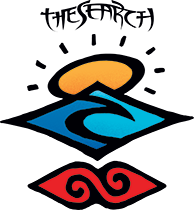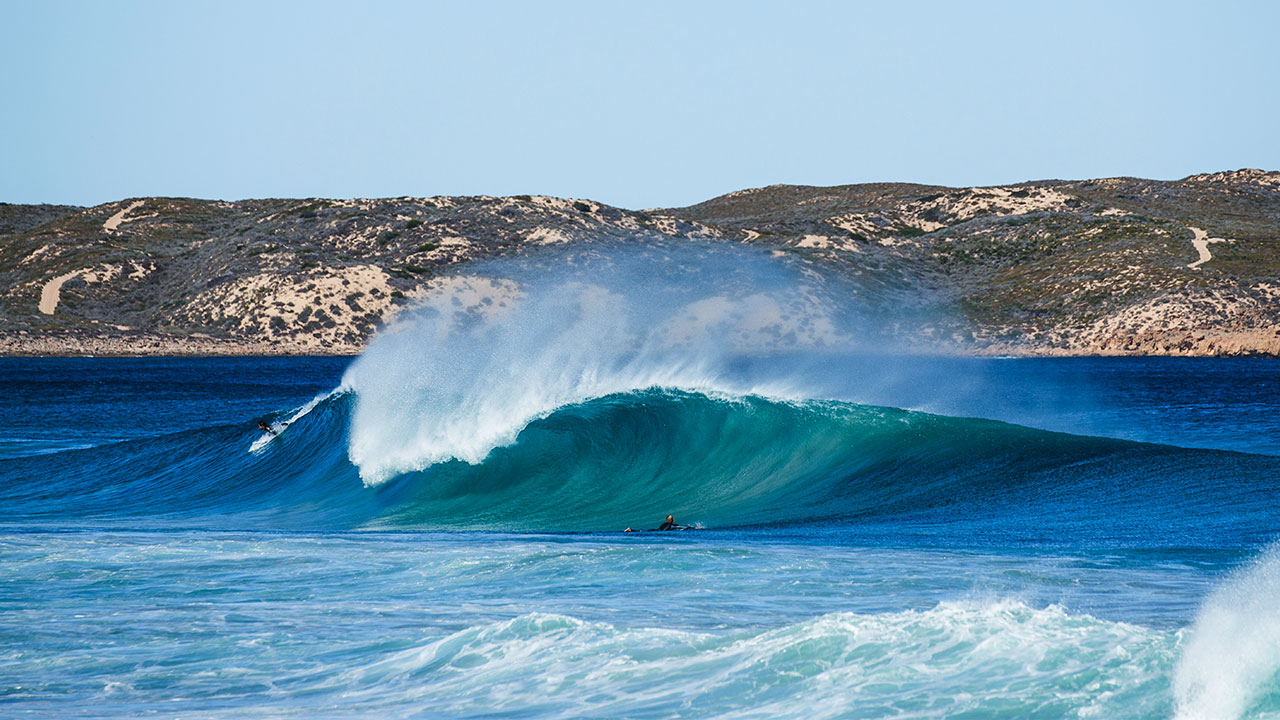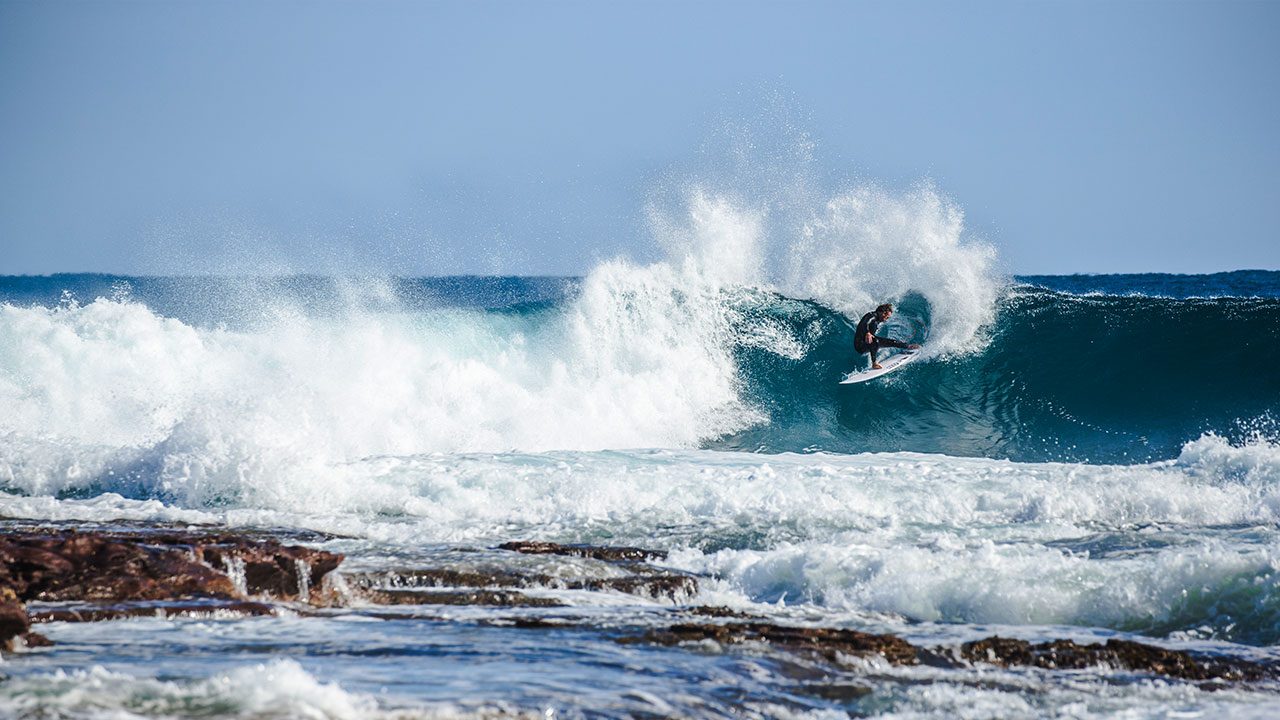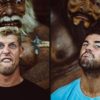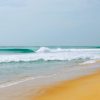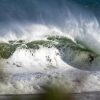It’s 5am on an unusually cool morning sometime in late May. Ry Craike stretches his legs from beneath the captain’s helm of an unnamed vessel. He stands up and opens the door to the starboard deck and looks out to sea, seeing nothing but reflective pink-and-blue ocean ahead as the sun rises from behind.
They’ve been heading north for four days now in this remote and vast landscape of nothingness, and this is just the beginning. This is, The Search.
“It was the captain’s idea to drive north,” says Dillon Perillo, who occupied the boat alongside Ry, Jacob Willcox and the crew. “The original plan was to head to a chain of islands pretty near where we had embarked, but by the time we were ready to start the journey we had heard whispers that other people were headed in the same direction. Then the captain, who is also the owner of the boat, proposed we do something different.
“I knew nothing about the area at the time – we all didn’t, really. But we checked the charts and did some research, and at the very last minute we changed our plan and drove the boat over 800 miles further north.”
The journey took approximately a week, land drifting in and out of view on the distant, wavering skyline every so often.
Each morning the boys would wake up and Ry, the seaman of the crew, would already be sitting on the stern, trailing a line and sinker into the ocean. Because of these efforts the daily menu was comprised of delicacies like fresh crayfish, bottom fish, pelagic fish and other creatures from the sea. “The food was incredible,” says Jacob, who’s grown up eating fresh fish in his seaside town in WA. “Seriously. We were eating like kings. The marine life where we were was a whole new level, something I’ve never seen – it was almost completely untouched. Ry is a cray fisherman by trade and he was giving us tips, so by the end of the journey north we were all wannabe experts. Top a day at sea off with a few beers and then wake up early to empty perfection – it was like a dream, really.”
Then, creeping into view, came the island they’d journeyed so far to see. It was past dusk and the remaining light was fading, so the crew decided to anchor around the corner from the break and wait out the night. Jacob remembers the exhilaration of the darkness, the anticipation after such a long travel, results unknown. “In the morning everyone woke up pretty excited. We weren’t too sure what to expect. We had seen a bit of footage of the wave we were looking at and it looked so good – a big, barrelling left. We could have just gone to the normal spots, the spots that other surfers have been to a million times, but we went for it – we did something more off the grid, we took the gamble – and it was thrilling.
“So as we hopped in the dinghy, drove out and saw the wave breaking, it was completely surreal. We saw these perfect lefts reeling through from way up the point. Everyone was so excited but also kind of unsure – we were saying ‘It looks really good, but is it good?’ It was a weird feeling because it was so unknown – but when we got out there and got a few waves, we realised what we had just found. It was a huge feeling of relief. It was all worth it.”
The boat spent the next five days anchored around the point and without fail, the boys surfed all day long and into the darkness. The lefthander was fuelled by solid swell heading from the deep south and continued to break comfortably in clean, offshore winds. For those five days it offered up endless blue six-foot barrels with not one other soul in sight. Ry, who already lives in an extremely remote area, was in awe.
“I already live in a pretty far-flung sort of place, but this was unique with the conditions and the swell we had on offer, and the fact that we had the resources to get where we did. We could have easily gone to some of the more well-known spots that would have been pumping, but that’s not what the Search is about. It’s about trying to uncover new waves and hunt further, and I’d only ever heard whispers about this place. I don’t think anyone has ever seen it and I know no one has ever surfed it.
“The best day we had the wave was about six-foot, empty and barrelling – it was winding down the reef really quickly. Jacob got this one pitting left that seemed like it would never end. Everyone was surfing great the entire trip, but that day was unforgettable. There is seriously nothing better than just sharing big, clean barrels with your mates. It’s stuff like that that I live for.”
On the fifth morning the crew woke up and checked conditions, unsure whether it was worth it to paddle out; the swell was peaking and it seemed a bit too big to hold. Plus, after almost a week of surfing the same wave, you’re allowed to picky. When they decided it looked surfable, Dillon, Jacob and Ry grabbed boards, got in the dinghy and started heading out towards the reef. Just as they were about to jump overboard, one of the deckhand’s girlfriends, who had paddled out a bit earlier, let out a scream.
“She had just been bumped off her board by a tiger shark,” recalls Jacob. “She was pretty calm because she’s a good diver and loves marine life, but when it initially hit her, she was pretty rattled. By the time we knew what was happening it was gone.”
He was trying to call his dad when he saw this thing come out of the deep water – the thing ended up being a massive tiger shark, and it was swimming circles around our boat. – Dillon
The crew unanimously decided that they’d better hold off on that particular session, but rather than just wait it out, they switched on the engine and motored north towards another break. “We surfed for a bit but it just wasn’t as good, so after an hour or two we went back to the left we’d been stationed at, figuring that the shark would be long gone,” says Dillon. “By the time we rocked up it was absolutely pumping. Everyone was doing what you do, getting boards ready and psyching up to paddle out. But right as we were about to get into the dinghy Jacob starts yelling from the bow of the boat. He was trying to call his dad when he saw this thing come out of the deep water – the thing ended up being a massive tiger shark, and it was swimming circles around our boat. It swatted its tail at us and I was like, ‘No way, I’m not surfing this wave ever again.’ There’s no way that was a coincidence.
“Where we went there was so much sea life, and Ry almost paddled out that afternoon because he said that there are so many fish in the sea that they wouldn’t attack, that we’re not on the list. But I have the opposite theory – more fish in the sea means more sharks to eat the fish, which in turn, makes it more dangerous. That’s my logic, and I wasn’t going to go surfing. It’s funny to think that we’d been surfing out there ‘till dark for almost a week.”
Jacob, on the other hand, remembers seeing the tiger shark as an experience, a rare opportunity. “It was so cool to be able to see that, from the safety of the boat. I mean, it had probably been there the whole time, it just finally got a bit more interested in us.
“I think Dylan might have been tripping out about it a bit more because he’s just not used to being so remote, so removed from everything and surrounded by such raw nature. I remember him describing the land as alien, and how struck he was at the how everywhere we went there was nothing – how crazy it was. Most of the guys from Australia are pretty used to that – to us it almost seemed normal, maybe just a new degree of intensity.”
And after two weeks of drifting at sea, the trip was suddenly coming to a close. Dillon, Jacob, Ry and the crew turned the unnamed vessel around and started the journey back to where they came from. They collectively agreed that, despite not having seen another living soul for 14 days, despite being confined to bunk beds and sleeping on the deck or under the helm, despite eating nothing but fish, despite sharks and seasickness and stir-crazy moments of isolation, the trip was almost too fleeting.
We found the wave and we got something cool, and we surfed somewhere that no one has ever surfed before, or at least not documented before. The Search paid off. – Jacob
“It all went so quickly,” says Jacob. “It wasn’t like most boat trips where everyone is off each other at the end. We got to see this new part of the world that no one had been to before, and we scored. We did it. We found the wave and we got something cool, and we surfed somewhere that no one has ever surfed before, or at least not documented before. The Search paid off.”
But perhaps Ry, the quietest of the bunch, summed it up best. “Mate,” he says, slowly, the Northwest Australian drawl dragging out his words. “Searching is what I live for. It’s what I’ve had embedded in me from a young age. I don’t think I’ll ever give up the feeling of not knowing what’s around the next corner.”
